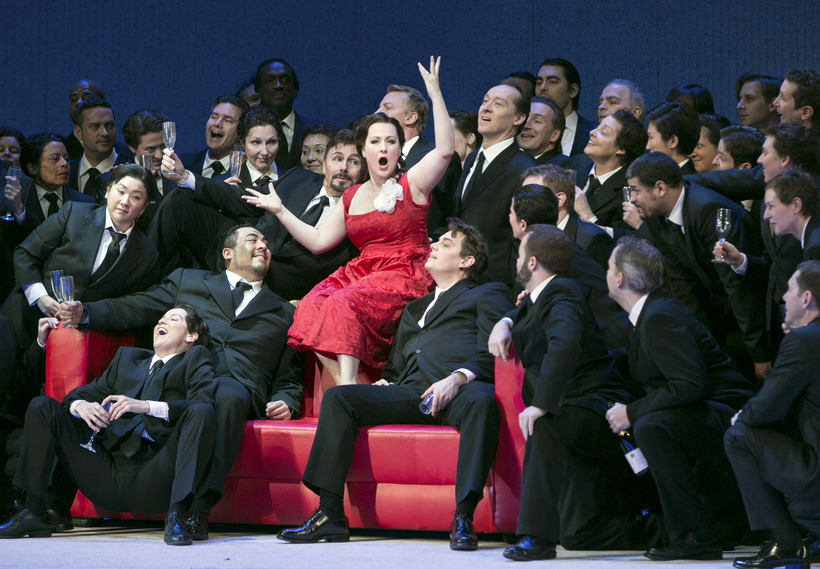The German soprano Diana Damrau knows how to draw you in close, even from a great distance. On October 24, on the Met Stars Live in Concert series, her song will be circling the planet from the majestic Cappella Palatina, at the Royal Palace of Caserta, that latter-day Versailles constructed by and for the kings of Naples. Parachuting in from her home in Zurich, Damrau joins forces there with the tenor Joseph Calleja, a golden-age throwback from the microscopic Mediterranean island republic of Malta.
In the intimacy of Salzburg’s 800-seat, white-and-gold Mozarteum, Damrau has been known to lock eyes with a responsive listener and forge an instantaneous bond. But as she has proved time and again since her triumphant Metropolitan Opera debut, 15 years ago, her spell reaches clear to the top gallery and all those wonderful people in the dark.

